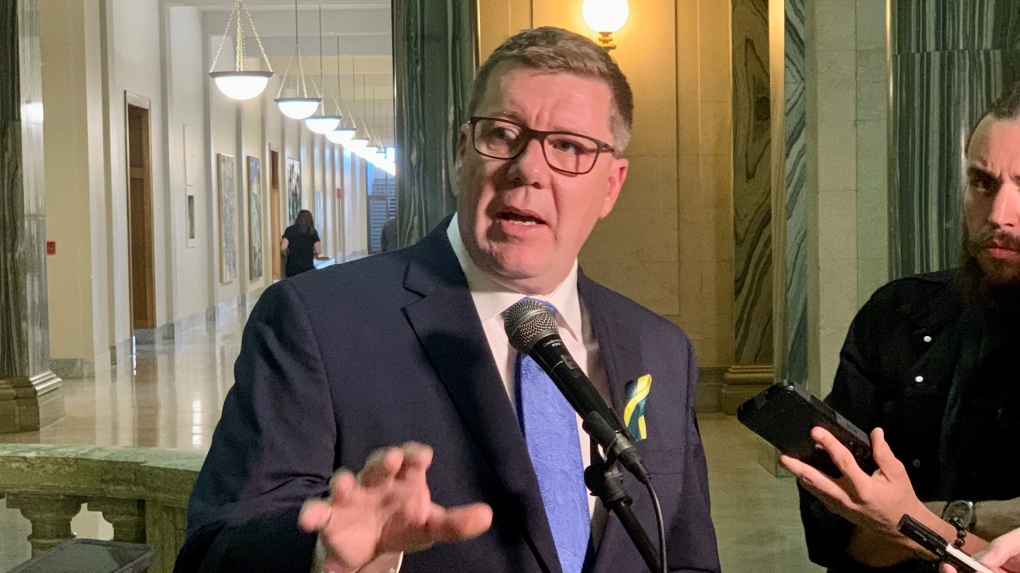
Saskatchewan considers notwithstanding clause to keep school pronoun policy change
CTV
Saskatchewan Premier Scott Moe is ready to use the notwithstanding clause to protect a new rule requiring parental permission for transgender and nonbinary students to use different names or pronouns at school.
Saskatchewan Premier Scott Moe is ready to use the notwithstanding clause to protect a new rule requiring parental permission for transgender and nonbinary students to use different names or pronouns at school.
In the face of a court challenge brought against the new education policy, Moe announced late last week that his provincial government would seek to enshrine the changes in legislation to be introduced this fall.
He recently told reporters that his Saskatchewan Party government was prepared to use different "tools" to ensure that the policy remains in place.
"If necessary, that would be one of the tools that would be under consideration -- yes," Moe said in an interview Wednesday when asked whether the notwithstanding clause was an option on the table.
"The notwithstanding clause is present for a reason -- so that duly elected governments can represent their constituents when necessary."
The notwithstanding clause is a provision in the Charter of Rights and Freedoms that allows federal, provincial and territorial governments to pass laws that override certain Charter rights for up to five years.
Debate around its use has heated up in recent years as provincial governments in Ontario and Quebec have invoked it pre-emptively, effectively preventing anyone from launching a legal challenge.

 Run 3 Space | Play Space Running Game
Run 3 Space | Play Space Running Game Traffic Jam 3D | Online Racing Game
Traffic Jam 3D | Online Racing Game Duck Hunt | Play Old Classic Game
Duck Hunt | Play Old Classic Game